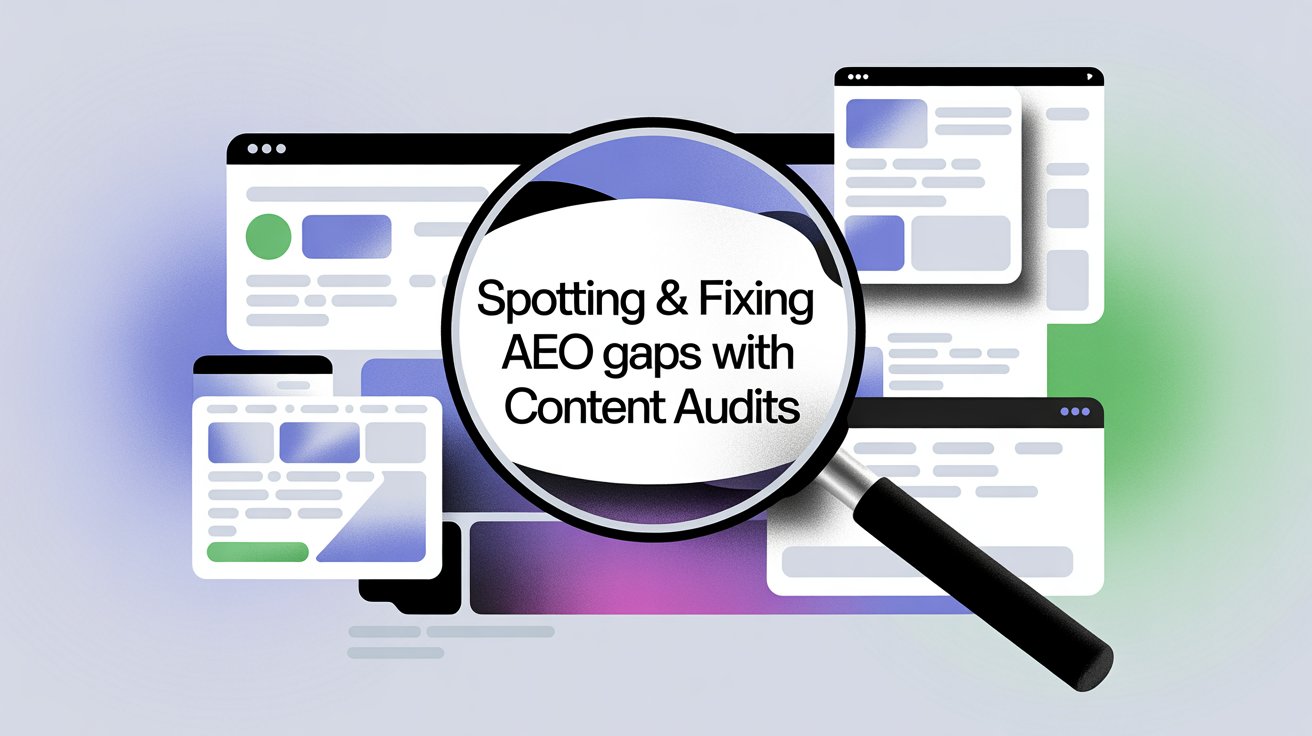Spotting & Fixing AEO Gaps with Content Audits: A Practical Guide
A deep-dive guide on running Answer Engine Optimization (AEO) content audits. Learn how to evaluate coverage, answerability, and schema health, with thresholds, tools, and actionable next steps to future-proof your site for AI Overviews, Perplexity, and Bing Copilot.

AI Overviews, Perplexity, and Bing Copilot reward not just keyword-rich pages, but authoritative, answer-ready content. The only way to know if your site qualifies is with an AEO content audit. Unlike traditional SEO audits, which emphasize rankings and backlinks, an AEO audit looks at coverage, answerability, and schema health. These three dimensions determine whether AI engines view your site as authoritative enough to cite.
Step 1: Coverage
Coverage answers the question: “Do we have content for every query our audience is asking?” Start with Query Fan-Out research using People Also Ask, Reddit, and forums, then map those queries into pillar and cluster structures. If more than 30% of queries in a cluster have no coverage, it’s a gap. Competitive audits show that sites with higher topical coverage are disproportionately cited in Google AI Overviews.
Step 2: Answerability
AI engines cite content that works as standalone mini-answers. Audit whether your intros, FAQs, and body paragraphs open with 2–3 sentence self-contained answers before elaborating. If fewer than 50% of pages pass this test, you’re missing citations.
Step 3: Schema Health
Schema markup is the machine-readable foundation of AEO. Use Google’s Rich Results Test and Schema.org standards to validate. Prioritize FAQPage, HowTo, and Article schema. If more than 20% of your high-value pages fail validation, AI engines may not trust your content. Structured data is also key for crawlability and site architecture.
Measurement & Next Steps
An audit is only as strong as its follow-through. Pair your fixes with KPIs from the AEO KPI Dashboard, including AI Overview filters in GSC, referral traffic from Perplexity, and logged brand mentions. Supplement with screenshots of your citations in AI results to build a case study of progress. Compare your audit deltas against industry benchmarks to contextualize your visibility.
Want to uncover your gaps and fix them fast? Our AI Search Optimization service includes a full AEO audit, schema validation, and a prioritized roadmap to ensure your firm is future-proofed for generative search.
Frequently Asked Questions
What is an AEO content audit?▼
How often should I run an AEO audit?▼
What tools help with AEO content audits?▼
What’s the difference between SEO and AEO audits?▼
Can Agenxus perform an audit for me?▼
Is AI Search Citing Your Website?
Our 42-point AEO audit reveals exactly why AI systems like ChatGPT, Perplexity, and Google AI Overviews cite your competitors instead of you — and gives you the fixes to change that.
